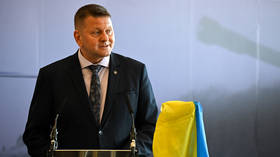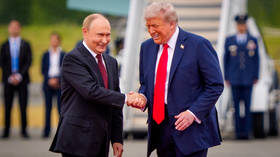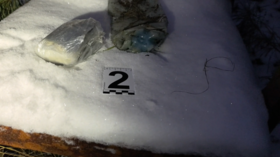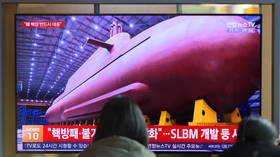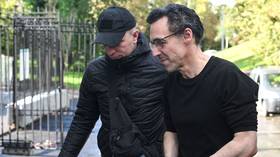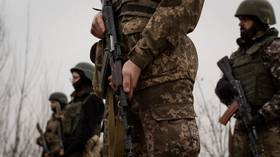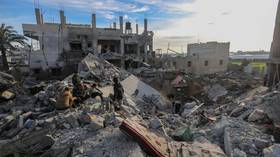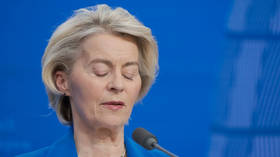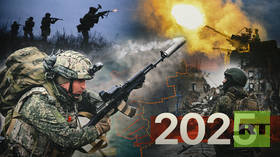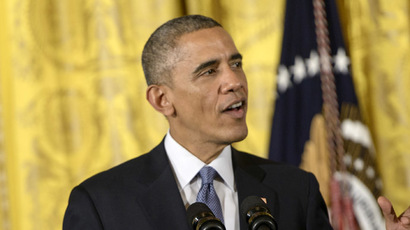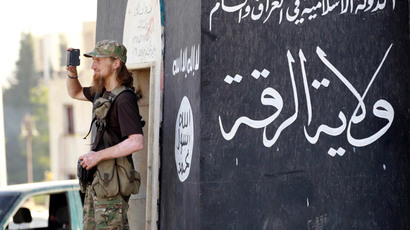Iraq graft probe exposes 50,000 ‘ghost troops’ crowding army payroll
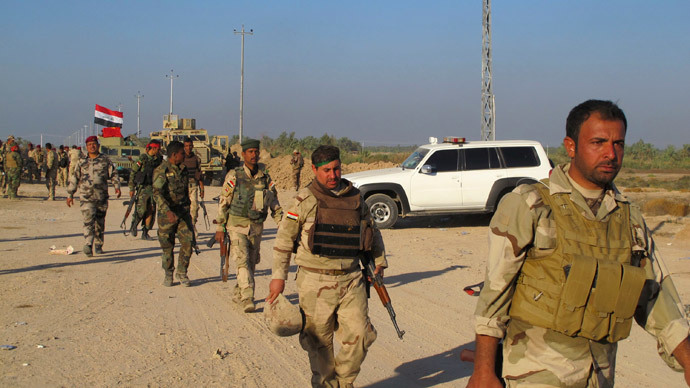
A headcount during the latest Iraq military payroll period revealed 50,000 ‘ghost soldiers’, who don’t work - or don’t even exist - but are paid, the PM told the parliament. The US has spent billions of dollars arming and training the Iraqi army.
Prime Minister Haider al-Abadi revealed the large scale of financial corruption in the national armed forces in a statement after meeting the parliament on Sunday.
“In terms of reforms in the military establishment, Prime Minister Haidar al-Abadi uncovered the presence of 50,000 fictitious named in four military units,” a statement from PM’s office said. The discrepancy was revealed after a few weeks of investigation into the issue, Abadi’s spokesman Rafid Jaboori said.
The statement did not nominate who exactly pocketed the money, which is enough to keep a force equivalent of several divisions on the payroll. But AFP cites an Iraqi army officer as saying that this kind of corruption is encountered on many levels of the chain-of-command.
“There are two kinds of ‘fadhaiyin,’” the officer said, using a term for fictitious soldiers crowding the payroll, which literally translates as ‘space men’.
“The first kind: each officer is allowed, for example, five guards. He’ll keep two, send three home and pocket their salary or an agreed percentage,” he said. “Then the second and bigger group is at the brigade level. A brigade commander usually has 30, 40 or more soldiers who stay at home or don’t exist.”
Getting soldiers’ cooperation for the scheme is not the only source for extra names on the payroll. There are troops who deserted or were killed, but not reported as such, so that their allowances were still paid.
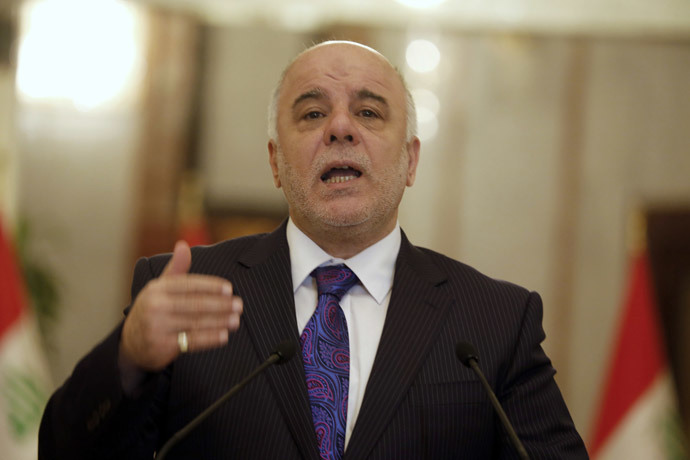
The graft system is apparently self-replicating. Higher-ranking commanders take bribes from their subordinate officers to turn a blind eye to their corruption, and many expect this kind of pay-off, which forces officers either to get involved in the scheme or risk losing their jobs.
Over the decade it occupied Iraq, the US spent billions of dollars on arming and training the Iraqi army. But when militants from Islamic State (IS, formerly ISIS/ISIL), conducted their lighting offensive in Iraq in summer, most of the Iraqi army units fled, leaving behind the US-supplied weapons entrusted to them.
Corruption in the military is one of the reasons morale in the Iraqi army was so low. There was also nepotism, as the government of former Prime Minister Nouri al-Maliki, a Shiite, encouraged promotion of Shiites to positions of power, while Sunnis were kept out of good jobs.
The discriminative policies contributed to the dissent among Iraq’s Sunni minorities, so the message of the IS, which wants to create a Sunni-only Islamist state in predominantly Sunni territories of Iraq and Syria, had its share of a sympathetic audience when they sent the Iraqi army running.
Abadi took office in September after weeks of post-election power struggle. Among his first moves was the sacking several military commanders in an attempt to mobilize the armed forces to fight the IS.
The US-led coalition conducting airstrikes against the IS is considering retaking the territories by sending boots on the ground the job to assist the Iraqi army. So far the most vigorous force opposing the IS’ expansion is the Kurdish militia, both in Iraq and in Syria.


